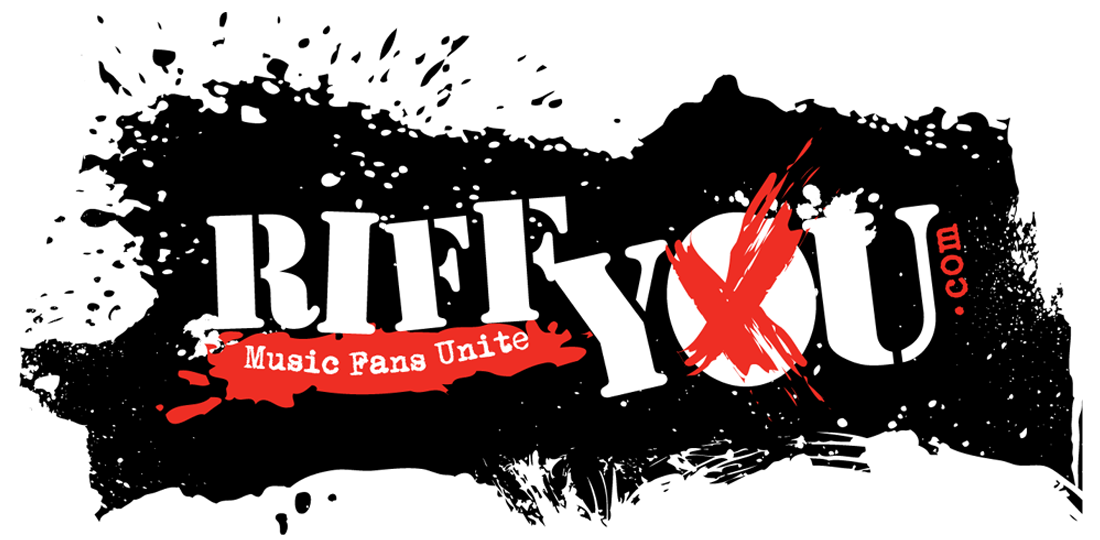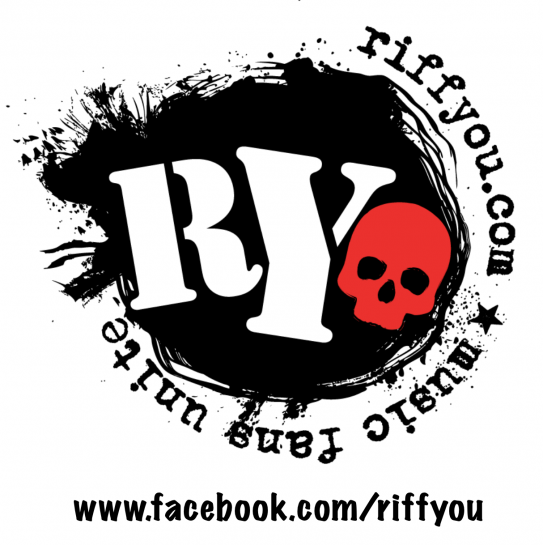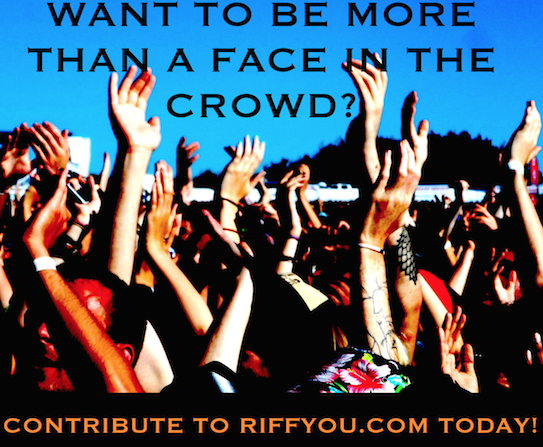Q&A: The Airborne Toxic Event – Insomnia & Inspiration
Mikel Jollett, the vocalist and chief songwriter of The Airborne Toxic Event, has a brain that’s 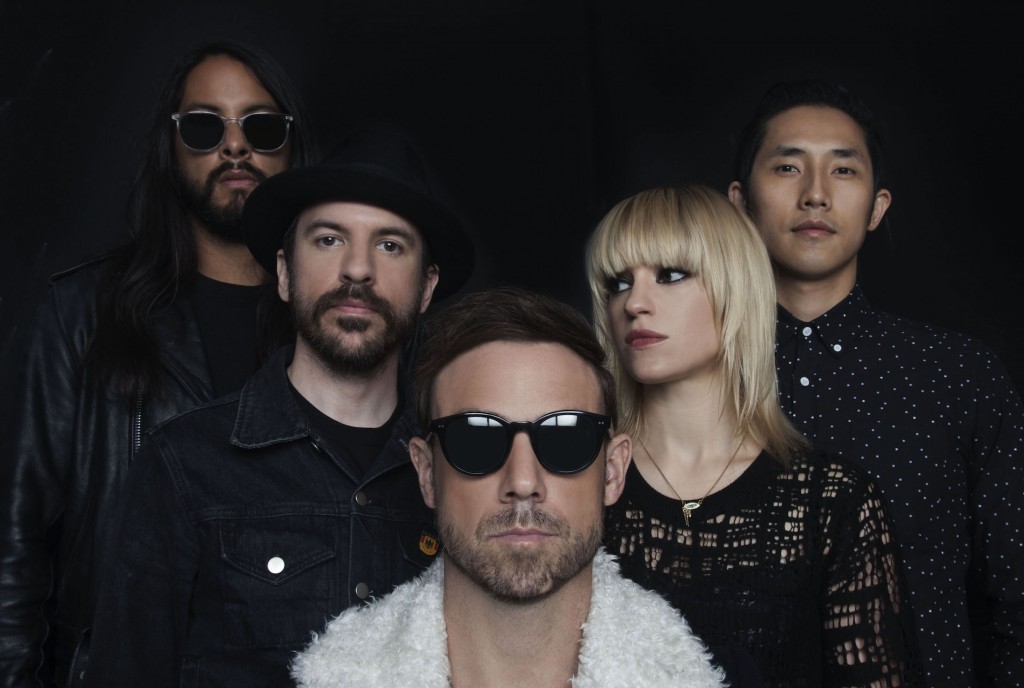 been both a blessing and a curse. While it allows him to create the deeply personal subject matter that makes Airborne Toxic Event songs ones worth continually exploring, it keeps him up at night and acts as the motor for his anxiety.
been both a blessing and a curse. While it allows him to create the deeply personal subject matter that makes Airborne Toxic Event songs ones worth continually exploring, it keeps him up at night and acts as the motor for his anxiety.
This hasn’t, however, broken Jollett. If anything, it has made him and the rest of his band – Steven Chen, Daren Taylor, Anna Bulbrook, and Adrian Rodriguez – a stronger, more dynamic force that’s part literature, part vast sonic exploration.
Now on studio album number four, Dope Machines, The Airborne Toxic Event sound as vital as ever, with a synth-heavy album that feels more like a band embracing wider soundscapes for the intense lyrical subject matter, rather than one trying to be Daft Punk with guitars.
Recently, Riffyou.com got on the phone with Jollett to discuss late nights; his challenging, yet rewarding song writing process; the desire not to analyze music; and wanting to remain off the grid even when in the spotlight.
RY: From a listener’s perspective, your songs feel tremendously personal. How do you go about writing them?
Mikel: “I am kind of an insomniac so I am up in the middle of the night quite a lot. Do you ever stay up late and your mind is racing?”
RY: Of course.
Mikel: “I have a lot of that too and a lot of times I am trying to capture that experience, so that’s when I do a lot of my song writing…or first thing in the morning, like 5am, because I’ve been up most of the night. A lot of the time I am trying to score that moment and create some sort of music approximation of how that felt or what I was thinking about, or what I’d just been dreaming about. Right now, we are having a discussion and there’s a lot of logic and analysis. It’s very different from the feeling of three in the morning and this one idea that just broke my heart, and me trying to get a keyboard sound that [represents] how I feel.”
RY: Does it ever become tiresome or frustrating to have to work like that? Or is it okay because this allows you to get where you need to be?
Mikel: “Song writing is tremendously cathartic, so a lot of the time what I am trying to do is not feel so alone with a thought that I am having. There’s something about writing it down and recreating it that has this way of bridging some kind of gap where instead of being alone with it in my head, now the thought itself exists in the world and has its own form. Then, I can digest it and turn it around, listen to it, think about it and share it with others so that they can think about it. Even if I don’t know what they think, even the fact of knowing other people are going to hear it helps me to understand it. Then, I feel less alone with it and like I’ve created something that didn’t exist before.”
RY: Have you rationalized why you have this habit of staying up late and why your mind races the way it does?
Mikel: “Oh God, I have a lot of anxiety and my brain is relentless…and it’s a chore. {Laughs} Sometimes I just wish I could turn it off. I used to drink a lot, but I don’t really have the stomach for it, so I don’t drink that much anymore. Some people use weed [to relax.] I’ve tried that before, but then I get lazy, don’t feel like myself and I get too spacy and say, ‘hey man, do you ever think about frogs?’ So, I then find that my thoughts become less interesting to me and others – and that’s no good. I’m just left to wrestle with [my brain.] But with song writing…to be able to live the life I lead is a tremendous blessing. I feel truly grateful that I get to make music and I just want to keep doing it. The fact that I have an audience, I feel lucky and I want to do right by it.”
RY: I noticed on the Airborne Toxic Event Facebook page that you were sharing lyrics from this album and then providing thoughts on what each song is about, or how it came to be. Was that an interesting thing for you to do…giving more away than just the lyrics themselves? I know some artists want to keep a certain mystique and not explain anything.
Mikel: “I think I used to believe that song writers who [had that mystique] were full of shit. Like, they wrote lazy lyrics and they didn’t want people to know that they really weren’t saying anything. But, I’ve come to respect that the interplay between melody, production, as well as lyrical conten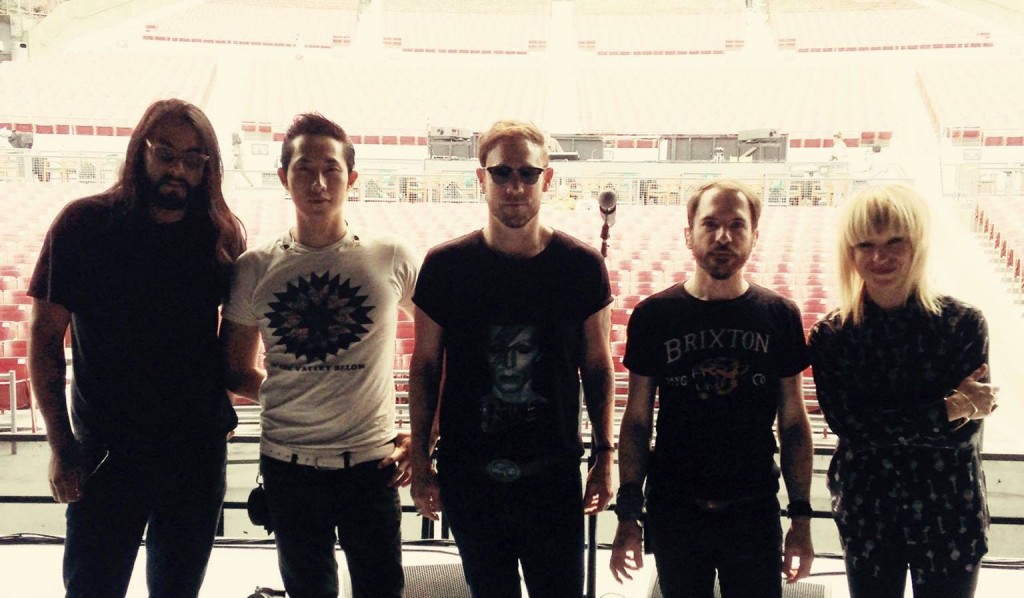 t is all a part of the universe of music and you can’t try and hold lyrics as a Holy Grail above other things – so I don’t think I believe that anymore.
t is all a part of the universe of music and you can’t try and hold lyrics as a Holy Grail above other things – so I don’t think I believe that anymore.
“Now, I’ve come full circle the other way – I find a lot of it vulgar. Like, I don’t want to talk about [the songs like that.] My manager wanted me to put those [explanations] up, so I put them up. People seem to like them and that’s cool. But, I definitely don’t want to be in the position where I am not trying to be grateful to people who are fans of my band…because it’s awesome.
“At the same time, it feels vulgar to me. I don’t want to talk about [the songs] in my daytime, analytical self. I don’t like that people discuss and analyze music. I hate fucking critics. I hate people who think that a song can be broken down into its composite parts. It just doesn’t work that way. I hate awards…all of that stuff seems like such bullshit to me. So I don’t want to talk about it. I want the contract to be between artist and listener…just about the song. If you like the song, listen to it – the same way I did with songs that touched me while growing up – like the Velvet Underground. I didn’t care what Lou Reed was doing that day or thought about when [making the song.] I didn’t care if he was a thoughtful person or kind of a prick, or the nicest guy ever. Who cares? I just wanted that moment with the song.”
RY: Is it especially tough for you then considering we are now in a social media-heavy society and people feel the need to know as much as possible about their favourite artists?
Mikel: “Yeah, I fucking hate it. I do not want to be in the public eye at all. It’s not like I want to, but want to control it…I just do not want to be at all. I just want to make music and then return to my life. I don’t ask for it, I don’t court it, I don’t want it, I don’t want any part of it. I don’t want to date famous people, I don’t want to be a famous person…I don’t want any part of that shit. I want my own private life with my friends and family and I want to make songs.”
RY: With that said, how do you handle life in the public eye?
Mikel: “For the most part, our fans are very thoughtful, intelligent and sensitive people. Your typical Airborne Toxic Event fan is either a 16-year-old honours English student, a couple in their 30s, or an idealistic college kid who wants to be a novelist. They tend to be smart and thoughtful people, so I really enjoy their company and I’m always amazed that they come to shows. I am always like, ‘wow, you guys are here!’”
-Adam Grant
Please be sure to follow us on Twitter @riffyou and at Facebook.com/riffyou.
